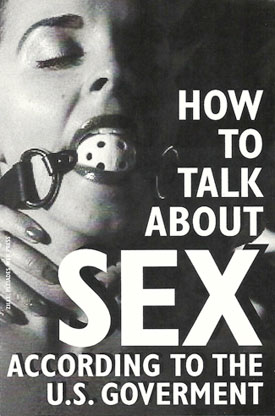Dear Friend and Reader:
One of the core astrological ideas in the current grand cross aspect involves Mars, the planetary ruler of Aries, retrograde in its opposite sign Libra.

I will say that slower. Every sign has planets associated with it. In traditional astrology, Aries, the first sign, is ‘ruled’ by the planet Mars. Mars is now retrograde in the sign that is opposite Aries, which is Libra.
Let’s use a simplified version of astrology wherein Aries is the sign of “I am” and Libra is the sign of “We are.” The ruling planet of a sign represents that sign, wherever else it may be in the zodiac. One way to think of this setup is that Mars, the representative of Aries, is being fully projected from Aries to Libra.
This describes a concept of relationship powerful enough to be on the level of an expectation or cultural mandate. Mars is the planet of maleness, but it can represent anyone, depending on the context; in our context here, it’s an expression of self-concept, so it will work for all sexes and genders. There are other contexts where Mars represents men or maleness.
In Western astrology, which is almost always psychological astrology, Mars is the planet that describes individual will power (or ‘personal power’), self-assertion, desire, sex drive and going after what one wants, as well as aggression and violent tendencies. Remember, Mars started as the Roman god of war; psychology works with its subtler shades.
Mars projected into Libra presents the image of investing one’s power into a relationship. All that I Amness of Mars looks like it’s handed over its individuality and becomes involved with the We Areness of Libra.
There’s more to the picture. Mars is currently retrograde. You can think of the retrograde as representing withheld energy. It’s also a reference to the past. In a natal chart, retrograde planets can represent personal qualities that we masked over or suppressed as a child so as not (in the child’s mind) to threaten our caregivers.
Mars is also in ‘detriment’ in Libra. That’s a way of saying that it’s potentially uncomfortable, out of sorts and, depending on the circumstances, either not performing up to its full potential or expressing itself differently than usual. There’s a persistent question of whether whatever Mars represents is really welcome in Libra; or the sensation of potentially being unwelcome.
It’s as if Mars is trying to assert itself in Libra, but ends up meeting inner psychological resistance (detriment), or keeping quiet, as if trying not to push things out of balance (retrograde). There is the sense of “I am here, but I’m not sure if I belong here” (detriment).

The reference to the past might be saying, “This has been going on for a while. Maybe things have always been this way” (retrograde).
There’s also the sensation of either one’s identity lost to a relationship, or seeking identity within one. Mars so invested in Libra potentially looks like a situation with no obvious way out, a kind of entanglement. Or it looks like an experience of total submission to a relationship.
When people define themselves as aspects of one another, as is one of the more popular current relationship models, their wholeness seems to depend on the involvement, acknowledgement or approval of the other.
I’ve noticed a good few people who don’t consider themselves to be people if they are not in a relationship of some kind. These days you will meet very few people who openly admit to being single; it’s like the new form of queer that it’s not flattering to talk about.
There seems to be no concept of and exceedingly little cultural support for taking a break between relationships, to do a self-assessment and figure out something about yourself.
We all know there is plenty of cultural pressure to be in a relationship. There are places and levels of society where one will be treated as a person when one is “in a relationship” and treated as somewhat less than a person when “not in a relationship.”
In his essay Jealousy and the Abyss, William Pennell Rock explains that one of the reasons jealousy is so devastating is that people tend to project their identity into relationships with a kind of totality. The relationship becomes their reality. When there is a jealous episode, it’s not just the relationship that’s threatened — most people feel like their very existence is threatened.
Mars is a planet that’s about both desire and aggression. Often, desire is aggressive, and jealousy episodes often come with a measure of rage; many people expect this, or feel entitled to it. It’s just one example of the way that desire is conflated with aggression. There are many others — for example, all of the various presumptions of personal ownership that come along with relationships.
These presumptions have gone on so long they are invisible. But one way they have come into focus is the current discussion of what is being called rape culture. Here is how Wikipedia defines that term: “In feminism, rape culture is a concept that links rape and sexual violence to the culture of a society, and in which prevalent attitudes and practices normalize, excuse, tolerate, and even condone rape.”
I define the term differently: Rape culture is the inability to distinguish sex from rape. This troubling confusion is possessed by people throughout the social spectrum, from many teenagers and young adults to some ad executives to some feminists. If sex in its loving and violent forms has become indistinguishable to many people, maybe that has something to do with how our society extols violence as the solution to nearly every problem.

Before I get into the topic of rape culture, I would suggest that those who are survivors of a sexual injury or serious incident read carefully and reality-check against your own experience. As one who has worked with many survivors in my astrology practice, I would remind you that the pain you may be carrying can be healed. You do not need to live with it in an unresolved state for the rest of your life. If you remain open to the potential for healing, you will be much likelier to encounter it.
Readers sent me two articles that came out this week highlighting the issue. One was The Danger of the Monster Myth, written by a man named Tom Meagher, whose wife Jill Meagher was raped and murdered in Australia.
In his article, he explains that the image of a rapist as a monster lurking in an alleyway or the bushes is mostly inaccurate — most of the time it’s seemingly normal people who commit rape. In my counseling practice I have noticed that it’s often committed by someone the survivor describes as “a friend of a friend,” who (for example) offered them a ride home.
Meagher wrote, “While the vast majority of men abhor violence against women, those dissenting male voices are rarely heard in our public discourse, outside of the monster-rapist narrative. Indeed, the agency of male perpetrators disappears from the discussion, discouraging male involvement and even knowledge of the prevalence and diversity of male violence against women.
“Even the term ‘violence against women’ sounds like a standalone force of nature, with no subject, whereas ‘men’s violence against women’ is used far less frequently. While not attempting to broad-brush or essentialise the all too abstracted notion of ‘masculinity’, male invisibility in the language of the conversation can be compounded by masculine posturing, various ‘bro-codes’ of silence, and a belief, through the monster myth, in the intrinsic otherness of violent men.”
He has a good point here. I think there is indeed a context issue, but the context is much larger than he’s saying; much larger than male perpetrators. The context is all of sexuality and our entire society. There is no such thing as rape culture; if the concept is valid, then we are talking about our culture itself. And within our culture, rage — the intrinsic ingredient of rape — is a serious problem, and not just in men.
What he does not talk about is the problem of all men being considered potential perpetrators — a problem with significant psychological impact on many men. He does not talk about the danger or potential of false accusation, which like rape for some women is the stuff of nightmares for some men — such as the ones who would never rape a woman.

The other article that came to my attention was called What That Game of Thrones Rape Scene Says About Rape Culture, written for ThinkProgress by Tara Culp-Ressler. The scene was in the most recent edition of the program, which is HBO’s most-watched program since The Sopranos — getting up to 6.6 million views for a single episode.
She wrote, “In the scene, Jaime forces himself on Cersei next to their son’s dead body. They had been kissing, but she pulls away from him, apparently still repulsed by the fact that he’s missing a hand — and Jaime becomes enraged with her rejection, hissing, ‘You’re a hateful woman. Why have the gods made me love a hateful woman?’ He pushes her to the ground, holds her down, and thrusts into her despite her continued protests. After she repeatedly begs him to stop and tells him it’s not right, he responds, ‘I don’t care’.” [Note, I believe she says ‘It’s not right’ in the context of having sex in the room with their dead son.]
The director of this episode, Alex Graves, claims to have been depicting consensual sex. I guess that depends on your concept of consent. In her ThinkProgress article, Tara Culp-Ressler makes a coherent point: the meaning of rape is diluted if many people don’t know what it is, or don’t have a concept of consent.
The way we talk about rape, the systems we have in place for investigating and punishing rape, and the way we approach rape victims, are all wrapped up in our struggle to recognize when someone’s consent has been violated, and our failure to acknowledge how serious that is. It’s perhaps no wonder we’re confused.
Kids don’t grow up learning about consent, and it’s not a concept that’s deeply ingrained in our culture, so they don’t necessarily know when those boundaries have been crossed. Without that knowledge, people … can look at the interaction between Jaime and Cersei — or a college administrator can consider a sexual assault that occurred between two students after they attended a party together — and mislabel it as “consensual.”
This is already happening among our youth. A recent study of young women who have experienced some type of sexual violence found that most of them simply assume that sex is something that’s done to them, in the way that Jaime does what he pleases to Cersei, and not something that they can be an active participant in. Other research has found that rapists don’t necessarily believe they’ve done anything wrong because they simply feel entitled to women’s bodies.

So, if rape victims tend to be people who think that sex is something that happens to them and rapists simply feel entitled to women’s bodies, we have a much more complex situation on our hands than is obvious on its face. Or looked at another way, it’s less a ‘problem’ and more of ‘the way things are’. It’s normal in American culture that the older generations do not understand the way the younger generations negotiate sex.
We do not live in a system of ‘yes’ or ‘no’ consent. We exist in a system of ‘maybe’ and ‘no comment’. I would ask, if you are someone who believes that sex must be transacted with explicit consent, how many times and in what language have you directly said yes, in actual words, not signals?
When we get into yes and no discussion, we enter sensitive psychological territory, connected with the right to assert one’s existence. Yes is often connected to shame, and no is connected to guilt. With those as options, it’s no wonder that ‘maybe’, ‘no comment’ and various signals are a seeming way out of the maze. Nearly all the time, this happens in the context of alcohol. Sex negativity has so terrified people of sex that many require a substantial amount of alcohol in order to get over their inhibitions — yet another way of evading responsibility.
Then it’s easy to blame sex on men. There is an underlying spiritual issue here, obvious to anyone familiar with Jungian psychology. To say that all rape (and often, all sex) is the fault of men is to project all sexual shadow onto men. Whomever may be responsible for any given rape, everyone has shadow material: conflict, shame, guilt, fear, jealousy, abandonment, anger and other emotions considered dark and undesirable.
To say that one sex or the other is the sole bearer of shadow material for everyone is not only to project the shadow material onto the other — it’s to project one’s power onto the other. This situation will persist until it becomes obvious that we all must claim our shadow and our power; claim responsibility for our choices and what they lead to, including the choice to give away our power. Choosing to be passive involves an active choice.

Part of the context of our current version of rape culture is an anti-sex indoctrination program pushed on society by fundamentalist Christians, called Abstinence Only. This has been taught in public schools in all states but California since the early 1980s. The theory is if you tell young people to abstain from sex, and make them sign a pledge, they won’t have sex, so therefore you don’t have to tell them about it.
Because they won’t be having sex, neither do you have to tell them about consent, pregnancy prevention, condom negotiation, sexually transmitted infections, masturbation, homosexuality and the idea that sex is about pleasure rather than about power. One result of this lack of information has been the rape problem we now have.
To go with that problem, we have an equally simplistic approach to the rape problem: rape is exclusively the fault of the man, end of discussion. This seems valid, from a legal and moral point of view. Rape is most often committed by men, but not exclusively. In truth it’s a crime committed by people of all sexes and genders, against people of any sex, gender or age.
In the rape paradigm as defined by law, rape is entirely the responsibility of the rapist. It is a kind of inviolable fact of modern society that this theory cannot be questioned. If one questions it, one will invariably be accused of advocating rape, rather (for example) than advocating preventing it.
In a comment this week to the Planet Waves website, one reader said: “When a man takes advantage of a woman — especially when she is in a vulnerable position like being drunk — she is a victim and not responsible for his violent behavior whatsoever, ever! If she decided to dance naked on a table, it is no invitation to rape, and a perversion indeed if she herself was made to believe that it is.”
Really? It’s common sense that if a drunk woman dances naked on a table at a frat party, she’s going to get fucked, whether she says yes, no or Moby Dick. Maybe that’s because dancing naked on a table at a frat party is the expression of desire, seduction and consent. Should she make a disclaimer in advance? Or announce, “Now it’s OK to fuck me!” If she does not know that dancing naked (along with many other behaviors) is potentially an expression of consent, she will find out soon enough. Whether something is legal in this context is another discussion — one that will be had in court, where with any luck law rather than custom prevails.
If we teach girls and young women that rape is always the man’s fault (and leave it at that), that will eclipse the idea that everyone has a duty not to be negligent; that on our particular planet everyone has a responsibility to take care of themselves.

The message translates to, don’t worry — if he rapes you, it will be his fault. A menstruating woman has a right to go swimming in an ocean where sharks live, and she risks being eaten by those sharks. Just make sure you don’t tell any girls or women who live near that particular beach — that is the current state of the sex discussion.
All of these scenarios involve the projection of power onto someone else. They all involve the notion that sex must always have a victim. Under the current terms of the discussion, all men are potential rapists and all women are potential rape victims.
All of this is a long way from men and women seeing one another as potential lovers, or friends, or allies. It’s a long way from admitting that dancing naked on a table is a symbol of something; it is not value-neutral, and it will have different values in different situations. It is definitely a sexual symbol. Pretending it’s not does not make that disappear. The same is true of all sexual symbols.
It may seem like women are the only victims in this game, but any man who has sex with a woman under the ‘sex is something that just happens’ scenario is subject to prosecution for a felony and spending 10 years in jail, even if implied consent was given. Failure to get clear consent is a way of giving up one’s power as well.
Rape is a demonstration of a problem in its most extreme form. An honest discussion of that problem would include all of the subtler forms, including the issue of consent — but before there can be consent, there must be desire.
What I believe is lost in this whole mess is that desire itself is the controversial thing; the thing that is veiled in taboo. Saying yes to sex — the very thing that means that sex is not rape — is about admitting to one’s desire, and that is potentially controversial. Saying yes means taking full responsibility for what happens. Implying consent, or hinting at maybe, or no comment, are all ways to evade responsibility. And that’s the way things are usually done. If you are concerned about this, explain the potential perils to your children.
The word consent means to “feel together,” an experience that is not always spoken. Still and all, yes and no are only meaningful in the context of one another. If we insist on using that paradigm, the one that exists mostly in theory and in the courtroom, both yes and no must each be understood and available for the other to be at all valid.
Wayland Young, one of my favorite authors, wrote in the book Eros Denied: “In museums, we replace the solid castings which cover machines by transparent covers because we want the children to see how things work. But no greenpainted steel casing around a crank case or a gearbox, no cover or shield or lid was ever so opaque as the wrapping with which we conceal the workings of desire and pleasure from our children and ourselves.”
At the heart of the matter, the problem seems to be a mix of ignorance and shame. I would propose that both are voluntary; both are optional.
Lovingly,


Planet Waves Monthly Horoscopes for May 2014, #996 | By Eric Francis
 Aries (March 20-April 19) — There’s a fine line between being lost and being found. Have you ever become disoriented, then certain you knew where you were, then discovered you did not know, and then finally figured it out? That’s different from cruising along confidently, sure of where you’re going — a quality you would love your existence to have. Yet to be there, you would need to know where you stand with yourself, and where you stand with others. That is the quest of the moment. I suggest you start with where you stand with yourself. It will be tempting to consider what you would do based on another person’s feelings, or to plot out your life based on what might happen in a relationship. The order of the moment seems to be how you can live your life spontaneously as yourself, following your plan for your own existence. Yes, it’s possible that plan involves investing your whole consciousness and intent within the life of someone else. You might ask yourself how that’s worked out for you in the past, and how much of what you have wanted to accomplish you actually have accomplished. Or closer to the point, to what extent do you feel that your way of relating to others has interfered with your ability to actually live your life? Once you sort this out, it’s likely to prompt you to redefine many things you took for granted in the past.
Aries (March 20-April 19) — There’s a fine line between being lost and being found. Have you ever become disoriented, then certain you knew where you were, then discovered you did not know, and then finally figured it out? That’s different from cruising along confidently, sure of where you’re going — a quality you would love your existence to have. Yet to be there, you would need to know where you stand with yourself, and where you stand with others. That is the quest of the moment. I suggest you start with where you stand with yourself. It will be tempting to consider what you would do based on another person’s feelings, or to plot out your life based on what might happen in a relationship. The order of the moment seems to be how you can live your life spontaneously as yourself, following your plan for your own existence. Yes, it’s possible that plan involves investing your whole consciousness and intent within the life of someone else. You might ask yourself how that’s worked out for you in the past, and how much of what you have wanted to accomplish you actually have accomplished. Or closer to the point, to what extent do you feel that your way of relating to others has interfered with your ability to actually live your life? Once you sort this out, it’s likely to prompt you to redefine many things you took for granted in the past.
 Taurus (April 19-May 20) — The opening you’re trying to pass through is as narrow or as wide as your mind. Rather than push harder, I suggest you notice what you’re thinking and feel whether it’s flexible enough to stretch. In principle, thought should be the most flexible thing in existence; it’s made purely of ideas. Yet it seems that humanity has figured out how to cut through stone, mold steel and forge new elements more readily than it can change its mind, especially on a collective level. It’s challenging enough making any decisions at all, and more complex when a second person is added to the equation. Your intimate partners are on their own path at the moment, making choices entirely outside the realm where you can consciously influence them. But you have all the influence in the world over your own choices, if you can think of yourself as an individual and not as part of something larger. You might say that’s the challenge of the moment. This relates to how as a much younger person you could not make a move without some version of family approval. You may have figured out that you can, but in truth it takes most people a long, long time to get there. In order to accomplish this, you don’t need to assert your individuality to other people — you need to assert it to yourself.
Taurus (April 19-May 20) — The opening you’re trying to pass through is as narrow or as wide as your mind. Rather than push harder, I suggest you notice what you’re thinking and feel whether it’s flexible enough to stretch. In principle, thought should be the most flexible thing in existence; it’s made purely of ideas. Yet it seems that humanity has figured out how to cut through stone, mold steel and forge new elements more readily than it can change its mind, especially on a collective level. It’s challenging enough making any decisions at all, and more complex when a second person is added to the equation. Your intimate partners are on their own path at the moment, making choices entirely outside the realm where you can consciously influence them. But you have all the influence in the world over your own choices, if you can think of yourself as an individual and not as part of something larger. You might say that’s the challenge of the moment. This relates to how as a much younger person you could not make a move without some version of family approval. You may have figured out that you can, but in truth it takes most people a long, long time to get there. In order to accomplish this, you don’t need to assert your individuality to other people — you need to assert it to yourself.
 Gemini (May 20-June 21) — There are karmic implications to sex. If nothing else, that has been the resounding message of the lengthy Mars retrograde that draws to a close over the next few weeks. Karma is merely an analysis of cause and effect, which is a simple law that says every cause has many potential effects and any effect has many potential causes. But the heart of the matter is that there is a relationship between the two sides of the equation. In our era, most of the karma around sex is created due to lies, secrets and silence. We would remove many of the implications of sex were we to open up and tell the truth — but at the same time, many relationships as we know them would crumble. People who go through this almost always emerge with a better life, a lighter conscience and a more direct way of relating. As Mars comes to a halt in Libra, your 5th solar house, you’re being invited to clear the air of anything that is lingering; of all that you have not said; to express the basic, elementary truth of your heart and soul. The risk involved is shifting, tipping or upsetting the seeming balance of your existing relationships. You might ask: is it really balance, or is it a balancing act? How do you tell the difference? Balance is easy; a balancing act is a struggle.
Gemini (May 20-June 21) — There are karmic implications to sex. If nothing else, that has been the resounding message of the lengthy Mars retrograde that draws to a close over the next few weeks. Karma is merely an analysis of cause and effect, which is a simple law that says every cause has many potential effects and any effect has many potential causes. But the heart of the matter is that there is a relationship between the two sides of the equation. In our era, most of the karma around sex is created due to lies, secrets and silence. We would remove many of the implications of sex were we to open up and tell the truth — but at the same time, many relationships as we know them would crumble. People who go through this almost always emerge with a better life, a lighter conscience and a more direct way of relating. As Mars comes to a halt in Libra, your 5th solar house, you’re being invited to clear the air of anything that is lingering; of all that you have not said; to express the basic, elementary truth of your heart and soul. The risk involved is shifting, tipping or upsetting the seeming balance of your existing relationships. You might ask: is it really balance, or is it a balancing act? How do you tell the difference? Balance is easy; a balancing act is a struggle.
 Cancer (June 21-July 22) — When you meet someone new, something that seems likely to be happening frequently for you right now, go right to the level of values. Cut past the superficiality and niceties and do your best to identify what you actually have in common with the person. Listen for clues about what he or she counts as the most significant elements of their existence. Listen for what matters to them. You don’t have time for anything else. What matters, that is, what exists on the values level, is the foundation of the relationship. You can only build on a foundation, so if you’re looking to create something, or to have your encounters with others serve a productive purpose, establish whether that deeper layer exists. It is unlikely to be based on appearances or the fact that you might be in the same line of work, or like similar music. You must be perceptive, and take into account both first impressions and what you learn over time. Notice when you’re ‘overlooking’ things or pretending they don’t matter. I have observed that people will indeed tell you where they are coming from, and that the only thing you need to do is listen and use the information you collect. What I am talking about here is the cultivation of trust. There are rare instances when trust is intuitive, and that intuition is correct. More often, you must use your conscious mind.
Cancer (June 21-July 22) — When you meet someone new, something that seems likely to be happening frequently for you right now, go right to the level of values. Cut past the superficiality and niceties and do your best to identify what you actually have in common with the person. Listen for clues about what he or she counts as the most significant elements of their existence. Listen for what matters to them. You don’t have time for anything else. What matters, that is, what exists on the values level, is the foundation of the relationship. You can only build on a foundation, so if you’re looking to create something, or to have your encounters with others serve a productive purpose, establish whether that deeper layer exists. It is unlikely to be based on appearances or the fact that you might be in the same line of work, or like similar music. You must be perceptive, and take into account both first impressions and what you learn over time. Notice when you’re ‘overlooking’ things or pretending they don’t matter. I have observed that people will indeed tell you where they are coming from, and that the only thing you need to do is listen and use the information you collect. What I am talking about here is the cultivation of trust. There are rare instances when trust is intuitive, and that intuition is correct. More often, you must use your conscious mind.
 Leo (July 22-Aug. 23) — It’s time to assess your relationship to the technology that surrounds you. There are days when you love it and days when you want to throw it all in the nearest swimming pool. I believe that the ‘technology issue’ currently represents the most critical turning point of the human race, and you may be feeling this in spades right now. You are more susceptible to its influences than many other people. I suggest you investigate how your use of devices has influenced your existence. Has interconnectivity connected you or isolated you? How much more time do you spend inside versus outside as contrasted to earlier in your life? When you think back 10 or 20 years, how was your social life different, in particular your group involvements? What about your one-on-one intimacies? Do you trust people more or less? One last thought: where do you think the infiltration of humanity by technology is headed, on the largest scale you can imagine? These questions are more complex than they may seem; they are the stuff that sociologists will be looking at for many decades to come. Yet within the emotional and spiritual levels of your life, the answers are accessible to you, and they will be meaningful. If there is something you’re concerned about on your behalf or that of your children, I suggest you make adjustments now.
Leo (July 22-Aug. 23) — It’s time to assess your relationship to the technology that surrounds you. There are days when you love it and days when you want to throw it all in the nearest swimming pool. I believe that the ‘technology issue’ currently represents the most critical turning point of the human race, and you may be feeling this in spades right now. You are more susceptible to its influences than many other people. I suggest you investigate how your use of devices has influenced your existence. Has interconnectivity connected you or isolated you? How much more time do you spend inside versus outside as contrasted to earlier in your life? When you think back 10 or 20 years, how was your social life different, in particular your group involvements? What about your one-on-one intimacies? Do you trust people more or less? One last thought: where do you think the infiltration of humanity by technology is headed, on the largest scale you can imagine? These questions are more complex than they may seem; they are the stuff that sociologists will be looking at for many decades to come. Yet within the emotional and spiritual levels of your life, the answers are accessible to you, and they will be meaningful. If there is something you’re concerned about on your behalf or that of your children, I suggest you make adjustments now.
 Virgo (Aug. 23-Sep. 22) — Managing your finances, and working your way to true prosperity, is a matter of balance. Many different elements are involved, similar to the ‘credits’ and ‘debits’ lines on a bank statement, but more complex. There is the equation where time must balance out with money; making more money often means investing more time. There is the time and energy equation; sometimes you have time, but you have to manage your energy. Perhaps the most significant one is, how do you go beyond a linear model, that is, a dollar-per-hour model of supporting yourself? That’s a way of asking, what is the value on your intelligence? In order to support yourself on your ideas, you must understand the value of your ideas to others — and then connect with those other people. These are some of the themes that are described by Mars stationing direct in a few weeks, and working them out all month long will help you set yourself on a productive path. One more thing: there is no substitute for commitment; there is no alternative to applying yourself fully to what you want to do. Often where there is a question of money or of self-support, commitment is the heart of the matter. The dedication you must offer can seem like it requires a sacrifice. Yet in truth, what you offer must be wholly voluntary.
Virgo (Aug. 23-Sep. 22) — Managing your finances, and working your way to true prosperity, is a matter of balance. Many different elements are involved, similar to the ‘credits’ and ‘debits’ lines on a bank statement, but more complex. There is the equation where time must balance out with money; making more money often means investing more time. There is the time and energy equation; sometimes you have time, but you have to manage your energy. Perhaps the most significant one is, how do you go beyond a linear model, that is, a dollar-per-hour model of supporting yourself? That’s a way of asking, what is the value on your intelligence? In order to support yourself on your ideas, you must understand the value of your ideas to others — and then connect with those other people. These are some of the themes that are described by Mars stationing direct in a few weeks, and working them out all month long will help you set yourself on a productive path. One more thing: there is no substitute for commitment; there is no alternative to applying yourself fully to what you want to do. Often where there is a question of money or of self-support, commitment is the heart of the matter. The dedication you must offer can seem like it requires a sacrifice. Yet in truth, what you offer must be wholly voluntary.
 Libra (Sep. 22-Oct. 23) — After nearly three months of Mars retrograde in your sign, I trust you’ve done some thinking about what you want. It looks like you’ve learned about what you don’t want. Mostly your charts suggest you’ve seen what happens when you set the whole matter of desire aside, and just ‘let things happen’ and ‘see how they work out’. One hint from your astrology is learning to experience desire without guilt. To do that, you might need to use guilt as a way of discerning the degree to which you actually want someone or something. Guilt is a toxin, but for you it also may be a sign of authenticity. How is this possible? Guilt is an indicator of having been pruned, controlled and manipulated. It’s an emotional response that clues you into being under the perceived control of someone else, whether in the distant past, the recent past, or by someone in your life now. Authentic desire is one of the most dependable methods of navigation through the physical plane. For that to work, you must take hold of the freedom, indeed, the necessity, to want what you want, and also learn the art of unraveling guilt so that you have true authority over your life. This is one of the most challenging growth lessons in existence, but it’s also one that delivers both immediate and long-term results.
Libra (Sep. 22-Oct. 23) — After nearly three months of Mars retrograde in your sign, I trust you’ve done some thinking about what you want. It looks like you’ve learned about what you don’t want. Mostly your charts suggest you’ve seen what happens when you set the whole matter of desire aside, and just ‘let things happen’ and ‘see how they work out’. One hint from your astrology is learning to experience desire without guilt. To do that, you might need to use guilt as a way of discerning the degree to which you actually want someone or something. Guilt is a toxin, but for you it also may be a sign of authenticity. How is this possible? Guilt is an indicator of having been pruned, controlled and manipulated. It’s an emotional response that clues you into being under the perceived control of someone else, whether in the distant past, the recent past, or by someone in your life now. Authentic desire is one of the most dependable methods of navigation through the physical plane. For that to work, you must take hold of the freedom, indeed, the necessity, to want what you want, and also learn the art of unraveling guilt so that you have true authority over your life. This is one of the most challenging growth lessons in existence, but it’s also one that delivers both immediate and long-term results.
 Scorpio (Oct. 23-Nov. 22) — For months, Mars has been retrograde in Libra, the most sensitive angle of your solar chart. This has provoked your imagination and your anxiety, and stirred you up emotionally. Now the retrograde is about to end, though once Mars stations direct on May 19, it will take more than two months to reach your sign. This phase takes the discussion to the subject of privacy and secrecy. Two months is enough time to make decisions about what you share and what you hide in your relationships. I suggest you make a careful inventory of what you allow others to know about you and what you choose to conceal, and why. Along with that, I suggest you look at any strategies you may have to insulate yourself, such as keeping separate groups of friends for different purposes, or managing whether certain individuals do or do not get to meet certain other individuals in your life. All of these scenarios present not just a map of your concept of intimacy, but of your concept of reality. These last phases of the Mars retrograde process are likely to emphasize the fact that you must live in a transparent way if you’re going to trust existence. Every secret you keep affirms that the world is dangerous and threatening. Every time you reveal yourself, you demonstrate that it’s safe to be alive as the person you really are.
Scorpio (Oct. 23-Nov. 22) — For months, Mars has been retrograde in Libra, the most sensitive angle of your solar chart. This has provoked your imagination and your anxiety, and stirred you up emotionally. Now the retrograde is about to end, though once Mars stations direct on May 19, it will take more than two months to reach your sign. This phase takes the discussion to the subject of privacy and secrecy. Two months is enough time to make decisions about what you share and what you hide in your relationships. I suggest you make a careful inventory of what you allow others to know about you and what you choose to conceal, and why. Along with that, I suggest you look at any strategies you may have to insulate yourself, such as keeping separate groups of friends for different purposes, or managing whether certain individuals do or do not get to meet certain other individuals in your life. All of these scenarios present not just a map of your concept of intimacy, but of your concept of reality. These last phases of the Mars retrograde process are likely to emphasize the fact that you must live in a transparent way if you’re going to trust existence. Every secret you keep affirms that the world is dangerous and threatening. Every time you reveal yourself, you demonstrate that it’s safe to be alive as the person you really are.
 Sagittarius (Nov. 22-Dec. 22) — By now you have a pretty good idea who your friends are. You seem to have learned the value of both being appreciated and of pissing people off. It’s not that being annoying is a viable way of life, but in noticing who is irritated by you and who welcomes you, you can have an accurate sense of where you belong. Your life is not about popularity — it’s about finding your strongest, most viable place in society and working from that point of advantage. Carving out your niche is usually a process of trial and error, and for that to work you need both. Creating a space for yourself on the planet can have some brilliant moments, and it will inevitably get on some people’s nerves. Being your own person requires a measure of not taking things personally. It’s just that you’ve been so sensitive to what people feel, and it has not been easy for you to have a thick skin. One thing to consider is the extreme importance of allowing others to own their feelings, which implies that you do not own or control their feelings. When you’re handed something you don’t want, you have a right to pass it right back. In this process of establishing boundaries, you will take possession of what you feel, and what you intend to accomplish. That is the crucial step.
Sagittarius (Nov. 22-Dec. 22) — By now you have a pretty good idea who your friends are. You seem to have learned the value of both being appreciated and of pissing people off. It’s not that being annoying is a viable way of life, but in noticing who is irritated by you and who welcomes you, you can have an accurate sense of where you belong. Your life is not about popularity — it’s about finding your strongest, most viable place in society and working from that point of advantage. Carving out your niche is usually a process of trial and error, and for that to work you need both. Creating a space for yourself on the planet can have some brilliant moments, and it will inevitably get on some people’s nerves. Being your own person requires a measure of not taking things personally. It’s just that you’ve been so sensitive to what people feel, and it has not been easy for you to have a thick skin. One thing to consider is the extreme importance of allowing others to own their feelings, which implies that you do not own or control their feelings. When you’re handed something you don’t want, you have a right to pass it right back. In this process of establishing boundaries, you will take possession of what you feel, and what you intend to accomplish. That is the crucial step.
 Capricorn (Dec. 22-Jan. 20) — With Mars stationing direct in your 10th house — the one that goes ‘all the way to the top’ — remember that leadership and authority are about relationships. These are not equal or level relationships, either. They are about authority, yet they also can be fair. What’s significant is that you are the one who must define fairness, and to do that, you must have a balanced mind, which is another way of saying equanimity. This is an interesting concept. It’s about one’s inner state, which has a way of expanding and reaching into the feelings of others. The relationships you’re building must be built on trust, and where you are in a position of authority, your willingness to play your role is a fundamental element of that trust. As the month unfolds, you’re likely to have a series of opportunities to step up to new challenges. I suggest you do this incrementally, never taking on more than you can handle. The goal is not to have power; the goals, if I may suggest a few, are to explore the feeling of competence, and what it’s like to collaborate with others in a satisfying way. Emphasize the quality of what you get done rather than how much or how impressive it is. If you’re concerned what others watching you might think, clearly, this is the focus.
Capricorn (Dec. 22-Jan. 20) — With Mars stationing direct in your 10th house — the one that goes ‘all the way to the top’ — remember that leadership and authority are about relationships. These are not equal or level relationships, either. They are about authority, yet they also can be fair. What’s significant is that you are the one who must define fairness, and to do that, you must have a balanced mind, which is another way of saying equanimity. This is an interesting concept. It’s about one’s inner state, which has a way of expanding and reaching into the feelings of others. The relationships you’re building must be built on trust, and where you are in a position of authority, your willingness to play your role is a fundamental element of that trust. As the month unfolds, you’re likely to have a series of opportunities to step up to new challenges. I suggest you do this incrementally, never taking on more than you can handle. The goal is not to have power; the goals, if I may suggest a few, are to explore the feeling of competence, and what it’s like to collaborate with others in a satisfying way. Emphasize the quality of what you get done rather than how much or how impressive it is. If you’re concerned what others watching you might think, clearly, this is the focus.
 Aquarius (Jan. 20-Feb. 19) — You may have the feeling that a close personal relationship has become so narrow that it’s not working for you. You are being called into a wider experience of life; you need your personal intimacies to grow and expand with you. One consideration here is that we are conditioned to create relationships that are ‘general partnerships’ rather than ‘limited partnerships’. In a general partnership, one size theoretically has to fit all, and one relationship is supposed to meet all purposes in our lives, which is plainly not practical in most situations. It might be, if you have an extremely retreating life, few ambitions and you don’t consider yourself on a path of rapid growth — none of which apply to you. Another dimension to this is that you need intense experiences. That’s just part of your nature. To have those experiences in a relationship, you need someone who can go there with you. You do a lot of guiding people into this concept, though that’s different from engaging with bold individuals who go there because they want to. Though this represents a big step from the seemingly intractable concept of one-on-one relationships that’s expected everywhere but hookup culture, you may need specific partners for specific aspects of who you are. This requires both confidence and mastery over your own life, and associating with others who trust you and who have authentic self-esteem.
Aquarius (Jan. 20-Feb. 19) — You may have the feeling that a close personal relationship has become so narrow that it’s not working for you. You are being called into a wider experience of life; you need your personal intimacies to grow and expand with you. One consideration here is that we are conditioned to create relationships that are ‘general partnerships’ rather than ‘limited partnerships’. In a general partnership, one size theoretically has to fit all, and one relationship is supposed to meet all purposes in our lives, which is plainly not practical in most situations. It might be, if you have an extremely retreating life, few ambitions and you don’t consider yourself on a path of rapid growth — none of which apply to you. Another dimension to this is that you need intense experiences. That’s just part of your nature. To have those experiences in a relationship, you need someone who can go there with you. You do a lot of guiding people into this concept, though that’s different from engaging with bold individuals who go there because they want to. Though this represents a big step from the seemingly intractable concept of one-on-one relationships that’s expected everywhere but hookup culture, you may need specific partners for specific aspects of who you are. This requires both confidence and mastery over your own life, and associating with others who trust you and who have authentic self-esteem.
 Pisces (Feb. 19-March 20) — Emphasize the positive. If you do, you’ll experience less resistance, and as a result, you will have more time and energy. Enough is going well that you can get a foothold in those aspects of your life and build from there. What this will do is push the issue of whether you have faith in yourself. Everyone experiences insecurity; Pisces has its own special variety, which can be debilitating in a subtle way. Yet the other side of that is that you possess the potential for faith that can get actual results. The fact that two centaurs are in your sign — Chiron and Nessus — reveals the possibility that you are sensitive to how dark the world is right now. There is no way you can deny this, even if such an approach worked in the past. Yet both of these planets also grant an unusual power of self-healing. That is the first and most significant step toward expanding your creativity and sense of mission into a working method that has a beneficial influence on the world. At this stage of your life it’s essential that you never take your own healing process for granted, and equally vital that you not get hung up in it, as if it’s the only thing there is. Work with your collaborators, use your time well and extend your creative awareness to everyone whose life you touch.
Pisces (Feb. 19-March 20) — Emphasize the positive. If you do, you’ll experience less resistance, and as a result, you will have more time and energy. Enough is going well that you can get a foothold in those aspects of your life and build from there. What this will do is push the issue of whether you have faith in yourself. Everyone experiences insecurity; Pisces has its own special variety, which can be debilitating in a subtle way. Yet the other side of that is that you possess the potential for faith that can get actual results. The fact that two centaurs are in your sign — Chiron and Nessus — reveals the possibility that you are sensitive to how dark the world is right now. There is no way you can deny this, even if such an approach worked in the past. Yet both of these planets also grant an unusual power of self-healing. That is the first and most significant step toward expanding your creativity and sense of mission into a working method that has a beneficial influence on the world. At this stage of your life it’s essential that you never take your own healing process for granted, and equally vital that you not get hung up in it, as if it’s the only thing there is. Work with your collaborators, use your time well and extend your creative awareness to everyone whose life you touch.



